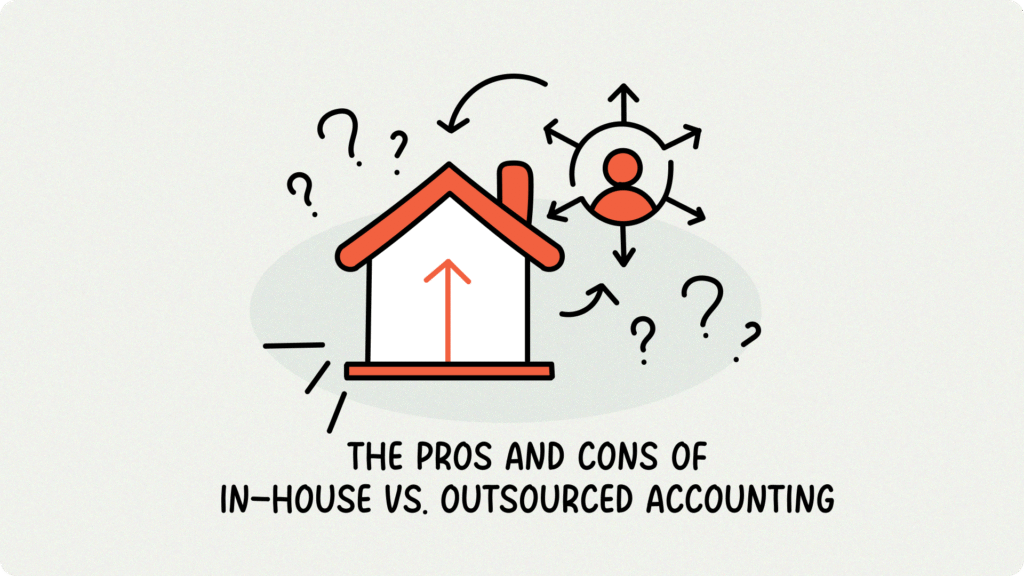The Pros and Cons of In-House vs. Outsourced Accounting

If you’re running a small business, you probably started out as your own “Chief Everything Officer.” That includes being the lead, and only, member of your accounting department. Late nights with spreadsheets and a shoebox full of receipts are a rite of passage for many entrepreneurs. But as your business grows, that system starts to break. The bookkeeping takes more and more of your time, tax questions become more complex, and you start to worry about what you might be missing. You’ve reached a financial crossroads: is it time to hire someone in-house, or should you outsource your accounting to an external firm? This is a major decision, and there’s no single right answer. It’s about understanding your needs, your budget, and what you want your role in the business to be. Let’s break down the pros and cons of each path. Table of Contents The In-House Route This typically means hiring a part-time bookkeeper or a full-time staff accountant. This person is your employee, working within your company on a daily basis. Pros of In-House Accounting: Cons of In-House Accounting: The Outsourced Path Outsourcing means partnering with an external firm (like Fynlo!) that handles your accounting needs remotely. You pay a monthly fee for their services. Pros of Outsourced Accounting: Cons of Outsourced Accounting: Finding the Right Fit: The partnership is crucial. You need to find a firm that understands your industry, communicates well, and feels like a genuine part of your team. TL;DR Comparison: In-House vs. Outsourced For a quick overview, here’s how the two options stack up against each other. Factor In-House Accounting Outsourced Accounting Cost High: Full-time salary + benefits + taxes + software (often $90,000+ total). Flexible: Predictable monthly fee, often a fraction of a salary. Pay only for what you need. Expertise Limited: Expertise is confined to the knowledge of one or two individuals. Broad: Access to a diverse team of specialists (tax, bookkeeping, strategy, etc.). Scalability Difficult: Scaling requires a lengthy and expensive hiring process. Easy: Services can be scaled up or down quickly as your business needs change. Control & Access High: Direct, daily management and immediate on-site access. Structured: Access is through scheduled calls and email. Less direct daily oversight. Response Time Immediate: on-demand support and instant adjustments. Defined: typically within agreed SLA, often same or next business day, and prioritised by urgency. Time Investment High: Requires time for hiring, training, and ongoing management. Low: The firm manages its own team and technology, freeing up your time. Continuity Risky: Operations can halt if your employee leaves or is unavailable. Reliable: Service is uninterrupted by vacations or personnel changes due to team structure. Best For Businesses valuing oversight, data security, and stable finances Businesses seeking cost savings, scalable solutions, and specialized expertise. Which Path is Right for You? The truth is, the best choice depends on your stage of growth. Ultimately, the goal is to get timely, accurate financial information that empowers you to make smart decisions, without draining your time or your bank account. The right solution shouldn’t just do your books; it should give you peace of mind and the freedom to focus on leading your business. Whether you’re considering bringing someone in-house or tapping into outsourced expertise, Fynlo’s advisors can help you weigh the options and find the best fit for your budget and growth plans. Schedule a free consultation today, and let us guide you toward the solution that frees you to focus on what you do best. You may also like these articles:
